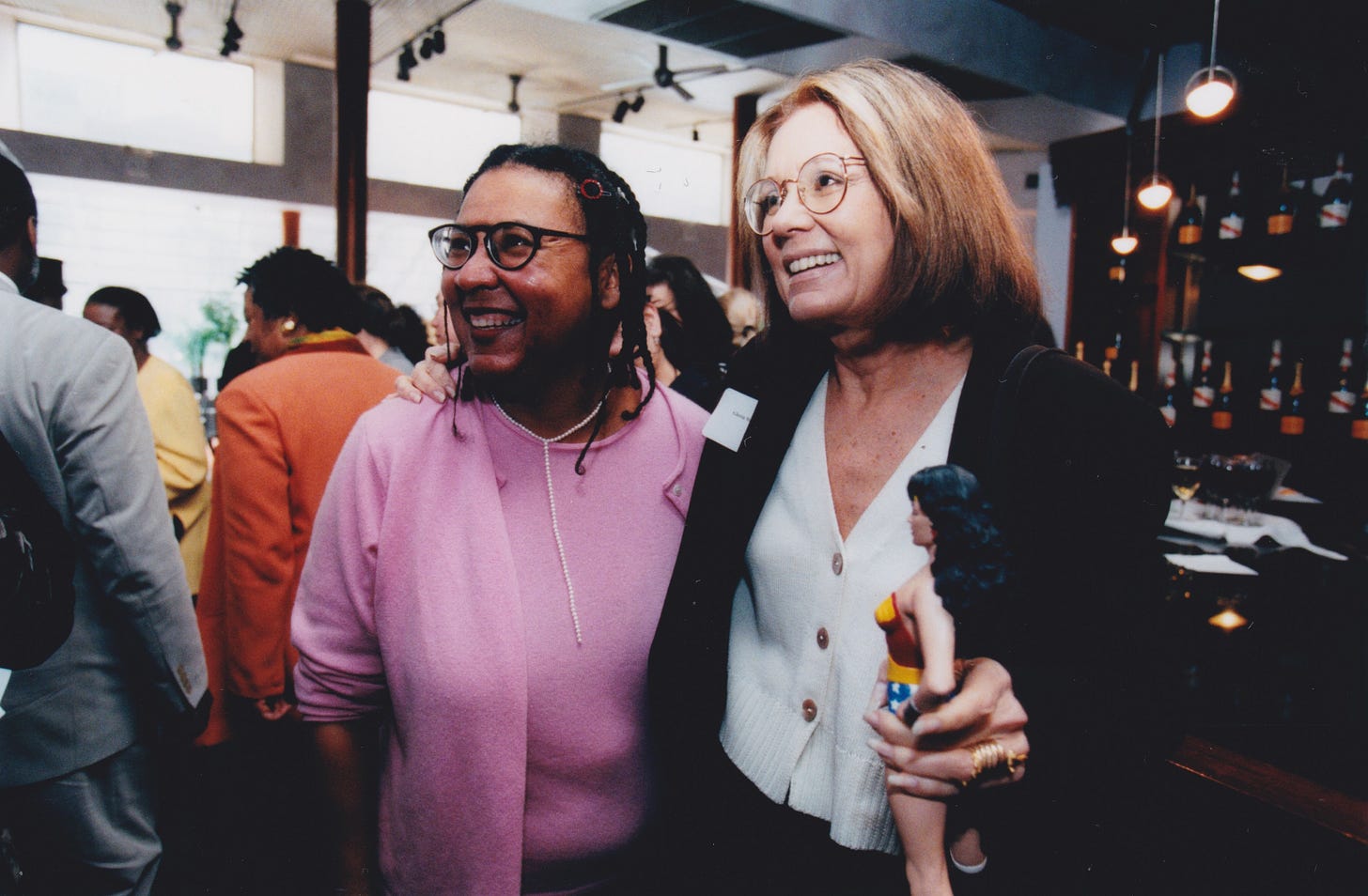bell hooks was a profound Black feminist teacher and activist who made academia and theory accessible. Over our years of friendship, we were sometimes invited to lecture together on a campus and it was always unexpected, like a jazz riff. We were surprised to hear from the audience members that our friendship was part of the message.
In 2022 I shared a tribute to bell hooks organized by Berea College. The below questions were my prompts, and the answers went on to become my speech.
I hope those who know and love bell’s work continue to discover important lessons from her writing, and I hope those who are new to bell step into an exciting journey of discovery through her words.
-Gloria Steinem 2025

How would you describe your relationship with bell hooks?
bell and I were friends who bonded when she was teaching at Yale in 1992 and had the daughter of a dear friend of mine as a student. I knew bell was special because students didn’t avoid her classes — they lined up and even snuck into them. Then she moved to New York and we saw each other more and lectured together on campuses.
What is your funniest memory with bell?
My funniest memory with bell is shopping with her on Martha’s Vineyard. She was a fierce, tireless shopper for small, inexpensive things — bits of jewelry or scarves — and this was something I recognized from my own childhood when stores were warm havens in the winter and air-conditioned in the summer. Stores were mini vacations from school, home, and hard times.
What about bell’s work inspires you the most?
Her insistence on the value of love, despite its devaluing by a patriarchy that confused love with dependence and racism that prevented freely chosen relationships. It was — and sometimes still is — revolutionary to believe in love, since it can only be chosen in freedom.
When was a time that bell challenged you or changed your thinking?
When bell was not so well and confined to her couch in Berea, she was loved and cared for by faculty members, students, and family members who only really had bell in common. She was the one true spirit who brought the disparate together.
What are your favorite works by bell and why?
“Ain’t I a Woman” because bell takes on the idea that a revolution can’t exist without women. “All About Love” because she dares to see revolution in such a trivialized word as love.
What is your favorite bell quote?
“You can teach by being in the world as much as by the books you write.” In this single sentence, bell demonstrates that teaching and learning is democratic. She emphasizes what brings us together, not what separates us — as she would say, the white capitalist racist patriarchy. For people devalued by society, by imperialist white supremacist hetero-patriarchy, to love ourselves is a radical act.
How do you apply bell’s work to your life?
I ask myself “What would bell do?” and try to do it. For instance, once we were both invited to speak at a conference that fell apart with divisions amongst the organizers and so never happened. But bell never gave up on those who were trying to make it happen.
How do we move bell’s interventions into a new moment?
By remembering that neither gender nor race exist — they are inventions, so we can uproot them and see each other as unique individuals. The world is divided into two kinds of people: those who see the world as divided into two kinds of people, and those who do not. Like bell, I’m trying not to divide but approach each person as unique.
If you could use one word to describe the legacy that bell hooks leaves behind, what would it be?
One word: love. And I don’t mean romance. In love, you want what’s best for the other person. In romance, you want the other person. To be loved is to be valued as your unique self.




Thank you so much, Gloria. It is so uplifting to me to know that you are still fighting the good fight.